Autor português de Ficção Científica e Fantástico, galardoado em 1991 com o Prémio Editorial Caminho de Ficção Científica.
Leitura de Contos para a futura antologia Pompeias Anunciadas
Conto «As Variações Eucarióticas», in Dúzia (2025)
[+ Info]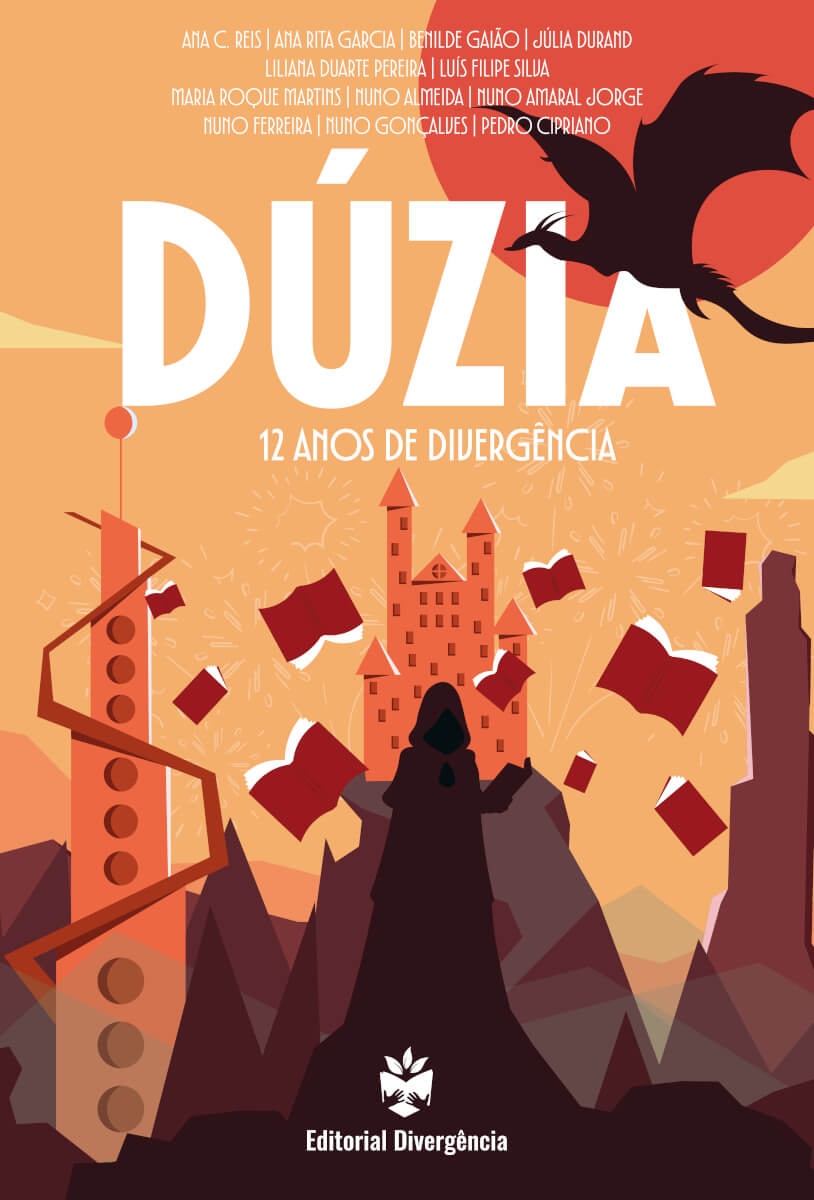
Artigo «Breve Tratado sobre os Terrores do Gado», in O Fim do Mundo em Cuecas (2023)
[+ Info]
Conto «Crónica de uma Morte Implacável», in Assim Falou a Serpente (2022)
[+ Info]
Conto «Epidermia», Orion 7. (2021)
[+ Info]
Conto «Epidermia», CLFC. (2021)
[+ Info]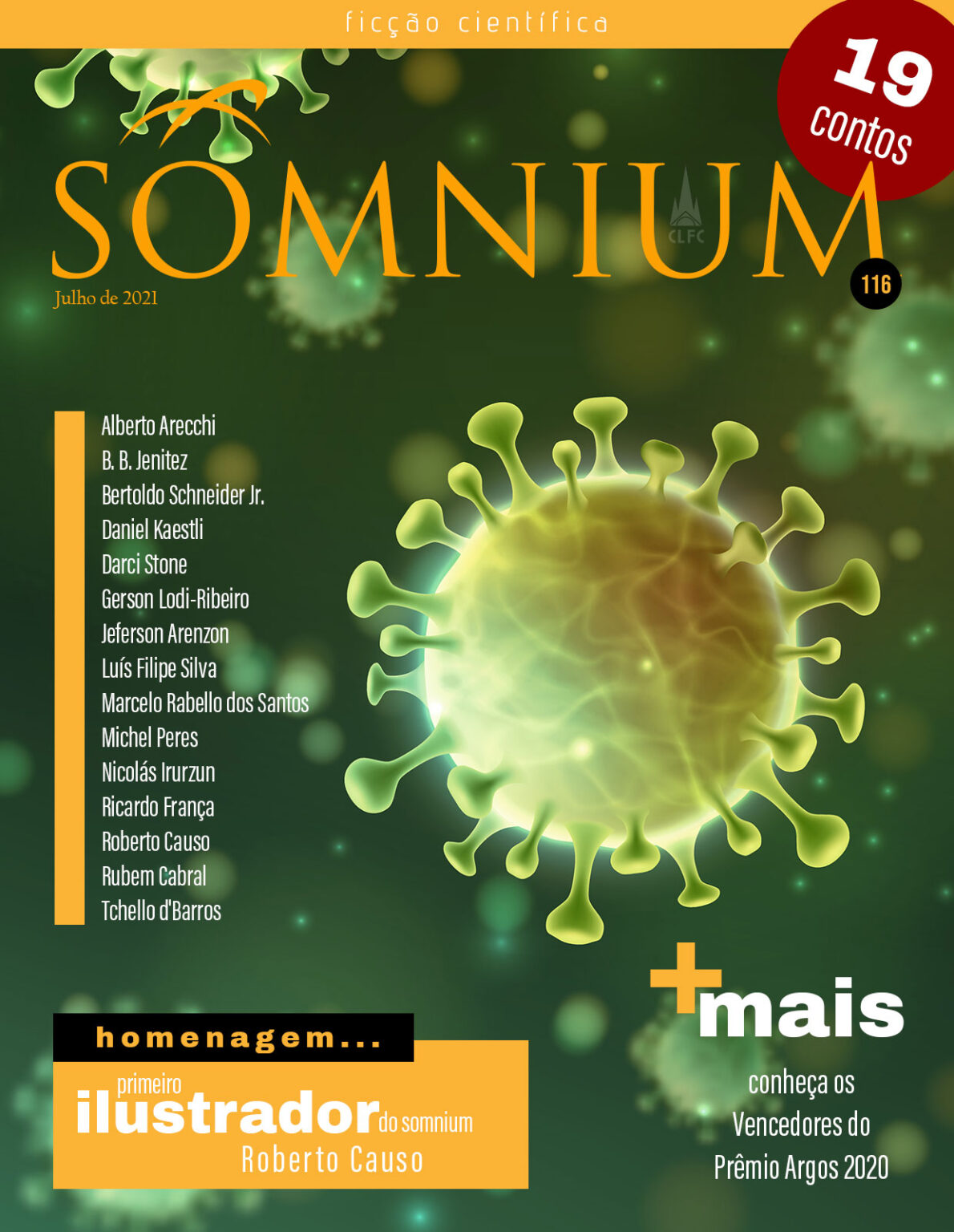
Conto «Herr Prosit Lê o Cardápio», FLUP. (2020)
[+ Info]
Conto «A Queda de Europa», Orion 5
[+ Info]
Conto «Não É o Que Ignoras o Motivo da Tua Queda Mas o Que Pensas Saber» in Contos Estraños, v. 12 - Visitantes de alén da Lúa, Urco Editora.
Conto «Ai, Mouraria 2.0», Orion 3/4
[+ Info]
Organizador de O Resto é Paisagem, Editorial Divergência.
Artigo «Em Busca do Velo Que Antevia o Futuro - Parte II: As Agruras da Colecção Argonauta» in Bang! nº16, Ed. Saída de Emergência.
Artigo «Em Busca do Velo Que Antevia o Futuro - Parte I: As Glórias da Colecção Argonauta» in Bang! nº15, Ed. Saída de Emergência.
Conto «In Falsetto» in Mensageiros das Estrelas organização de Adelaide Serras, Duarte Patarra e Octávio dos Santos, ed. Fronteira do Caos
Artigo «Os Livros das Minhas Vidas» in Bang! nº12, Ed. Saída de Emergência.
Organizador, com Luís Corte-Real, de Os Anos de Ouro da Pulp Fiction Portuguesa, Ed. Saída de Emergência
[+ Info]
Entrevista a respeito de Os Anos de Ouro da Pulp Fiction Portuguesa in Bang! nº11, Ed. Saída de Emergência.
Conto «A Queda de Roma, Antes da Telenovela» in Assembléia Estelar organização de Marcello Branco, ed. Devir Brasil
[+ Info]
Colaboração em Mensageiros das Estrelas - Colóquios de Ficção Científica e Fantasia, Centro de Estudos Anglísticos, Faculdade de Letras, Lisboa. 2 a 5 Novembro.
Co-organizador, juntamente com Gerson-Lodi Ribeiro, de Vaporpunk - Relatos Steampunk Publicados Sob as Ordens de Suas Majestades, Editora Draco (Brasil).
Tradução: O Verdadeiro Dr. Fausto (Jack Faust) de Michael Swanwick, ed. Saída de Emergência.
Conto «Dormindo com o Inimigo» in Dagon! organização de Roberto Mendes.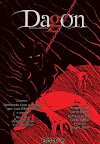
Conto «Não É o Que Ignoras o Motivo da Tua Queda Mas o Que Pensas Saber» in Brinca Comigo! organização de Miguel Neto, ed. Escrito'rio.
Conto «A Casa de Um Homem» in Imaginários 2 organização de Tibor Moricz, Eric Novello e Saint-Clair Stocler, Editora Draco.
Conto «Dormindo com o Inimigo» in Galeria do Sobrenatural organização de Sílvio Alexandre, Terracota Editora.
Conto «Deste Lado de Cá» e entrevista in Dagon n.º 0 organização de Roberto Mendes, e-zine.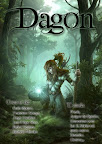
Tradução: A Guerra é Para os Velhos (Old Man's War) de John Scalzi, ed. Gailivro.
Prefácio ao livro As Atribulações de Jacques Bonhomme de Telmo Marçal, ed. Gailivro.
Membro do júri do Prémio Bang! de Literatura Fantástica promovido pela Saída de Emergência.
Tradução: «A Ficção, por Henry James e Roberts Louis Stevenson», de Dan Simmons, in Bang! nº5, Ed. Saída de Emergência.
Artigo: «Antologias, Fantasia & Odisseias», in Bang! nº4, Ed. Saída de Emergência.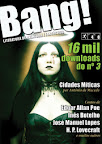
Novela: «Aqueles Que Repousam na Eternidade», in A Sombra Sobre Lisboa, Ed. Saída de Emergência.
Tradução: As Crónicas da Espada - O Encontro, de Fritz Leiber, Ed. Saída de Emergência.
Poema: «Sonhos de Planetas e Estrelas», in Linhas Cruzadas, Ed. Portugal Telecom.
Romance, com João Barreiros: Terrarium, Editorial Caminho.
Romance: Vinganças (A GalxMente II), Editorial Caminho.
Romance: Cidade da Carne (A GalxMente I), Editorial Caminho.
Conto: «O Mundo Distante», in O Atlântico Tem Duas Margens, Editorial Caminho.
Colectânea: O Futuro à Janela, Editorial Caminho.
[Versão Ebook]
A Recordação Imóvel (conto, 1996) [link]
No Coração do Deserto (conto, 1995) [link]
A Importância do Conto (artigo, 1991) [link]
Curtas Histórias (E Breves Considerações) Sobre a Literatura de Género (artigo, 2012) [link]
Prime Station cycle
A cog in the machine [link]
A spinner is not a deepdiver [link]
A match made in heaven [link]
The truth about the moon landing
1 [link]
2 [link]
3 [link]
Happy(yes)ness [link]
Still Memories [link]
Nothing is as candid as a clock [link]
The flip of a coin [link]
A trip to the museum [link]
What comes around [link]
Science fiction is [link]
"My" Bradbury [link]

Exposição Prolongada à Ficção Científica
um blog de Luís Filipe Silva
23 Junho 2007
DE PASSAGEM POR PORTUGAL, no ano passado, por ocasião do lançamento do livro A Transformação de Martin Lake, da Livros de Areia, Jeff VanderMeer inaugura o seu novo site de autor (com um layout belíssimo e invejável) e aproveita a ocasião para publicar o artigo sobre o fandom europeu que surgiu na revista Locus no início do ano. Eis, como destaque, o que tem a dizer sobre nós:Take, for example, the Portuguese market for genre fiction, which is tiny-a print run of 1,500 would be average. We were, half jokingly, half seriously, introduced to Portugal’s “SF writers” (João Barreiros and Luís Filipe Silva) and “only Horror writer” (the incomparable David Soares, who also creates graphic novels). Half-jokingly in that these writers represented perhaps the majority of successfully published homegrown Portuguese SF and horror writers (many more are struggling to achieve publication).
In Portugal, the terms “Science Fiction” and “Fantasy” are often seen as a detriment to sales, and the most common result is the attempt to disguise SF/F as something else-and then compare it to Borges, who is wildly popular in Portugal. This is certainly the tact taken with my own collection from Livros de Areia, one of the smaller presses (despite having published Eduardo Galeano, Jerzy Kosinski, and other well-known writers).
Problems of publishing genre in Portugal also include the sudden collapse of the SF/F infrastructure in Portugal about a decade ago and, at least according to some writers I talked to, that only three decades have passed since the overthrow of an authoritarian dictatorship in a military coup (not to mention, an educational system that is still in severe disarray).
This sense of history still impinging on the literature of the present became a recurring theme, especially in places like the Czech Republic, Romania, and Germany. Events like the fall of Communism might seem as if they happened long ago, but it has only been a generation or so, and that’s not long enough for the wounds to have healed or some societies to have completely recovered from the harm done to them.
However, there’s a difference between a lack of institutional support and the full-on passion and effort of individuals, and there are many committed people in the current SF/F scene. In addition to the efforts of Joao Seixas and Pedro Marques from Livros, Luís Corte Real’s commitment to his publishing house Saída de Emergência has resulted in several exciting projects, like the translation of Alan Moore’s novel into Portuguese. Another activist in the scene is the translator and editor Luis Rodrigues, the man largely responsible for the dialogue between Portuguese SF/F and the English-speaking world through his Fantastic Metropolis website and corresponding anthology, Breaking Windows.
Rodrigues bemoans what he calls a vicious cycle: “Everything is done on the cheap, due to the flimsiness of the market and also because most publishers don’t take SF/F seriously enough themselves. So they take the cheapest books and translators they can find (usually translation students or people with no training at all), which only keeps readers from investing in Portuguese genre editions. Things are either done for the love and with some sacrifice, or done poorly, and you can’t reach critical mass with bad books or butchered classics….We have a long, long road ahead of us.”
This may be true, but my perception of the Portuguese SF/F scene was rather less jaded: I saw many pragmatic people working very hard for the fiction they love to read and write.
| |||
|






